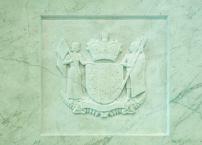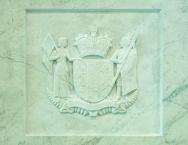Tributes for New Zealand’s First Chief Coroner
Former Chief Coroner, Judge Deborah Marshall, has paid tribute to New Zealand’s first Chief Coroner, Judge Neil MacLean QSO, who passed away on Friday.
She says Judge MacLean showed outstanding leadership in creating a full time professional coronial bench. “He fostered excellent working relationships with key stakeholders including ESR, the Police and health professionals.”
Coroner Peter Ryan, who worked with Judge MacLean from 2007 until he retired, recalled his “compassion and empathy” for grieving families. “Also, I appreciated the way he engaged with the members of the bench and involved us in the setting up of the new service”.
Coroner Sue Johnson helped Judge MacLean write the Benchbook for Coroners which provides an overview of legal procedures in the jurisdiction. She says Judge Maclean was avery good first Chief Coroner, who did an extraordinary amount of work to update the old system.
“Judge MacLean was very wise, and I learned a great deal from him and felt privileged to have worked with him, but also to have gotten to know him as a very jolly, warm, friendly and kind gentleman.”
The Deputy Chief Coroner, Coroner Anna Tutton, who became a coroner shortly before Judge Maclean retired, and had previously appeared before him in the Coroners Court as a lawyer, remembers him as courteous, friendly, helpful, and down to earth.
Judge MacLean began his law career in Christchurch after graduating from the University of Canterbury in 1967. He had a distinguished career in the legal profession between 1972 and 1993 before being appointed a District Court Judge. However he came to prominence nationally in 2007 when he became New Zealand’s First Chief Coroner.
In this role, he worked with the government of the day, to select and decide on the locations for the 16 Coroners appointed at that time to operate a national coronial system for the first time.
Among the new streamlined service’s early achievements was the setting up of a 24/7 National Initial Information Office and duty coroner roster, which improved the turnaround time for releasing to families the bodies of deceased people whose deaths had been reported to the coroner. He also spent considerable time building relationships with other agencies involved in the coronial process, such as police.
Two mass fatality events occurred during Judge MacLean’s time as Chief Coroner. The first was the Pike River Mine explosion in November 2010 in which 29 men died. The following month, Judge MacLean met bereaved families in Greymouth to explain the coronial process to them.
Two months later, in February 2011, a devastating earthquake struck Christchurch and 185 people lost their lives. Judge MacLean travelled to Christchurch, where he again provided information and reassurance to grieving families.
He referred to this when delivering the 2015 Henry Harkness lecture at Waikato University: “The existence of NIIO [the Duty Coroners Office] and the ability to rotate a small group of embedded coroners at Burnham, backed up 24/7 by the back-office services of NIIO, ensured we were able to play our small but vital part… to provide expeditious resolution of identification issues, release of bodies to families, with one reliable source of information.”
Judge MacLean was also a strong advocate for improved reporting and more open discussions on suicide. He frequently appeared in the media to discuss matters such as youth suicide, cyber bullying, and solvent abuse, and to ensure the public were aware of the work of the Coroners Court.
Judge MacLean was made a Companion of the Queen's Service Order in the 2015 Queen's Birthday Honours for his services to the judiciary.
Media Contact: Annie May






